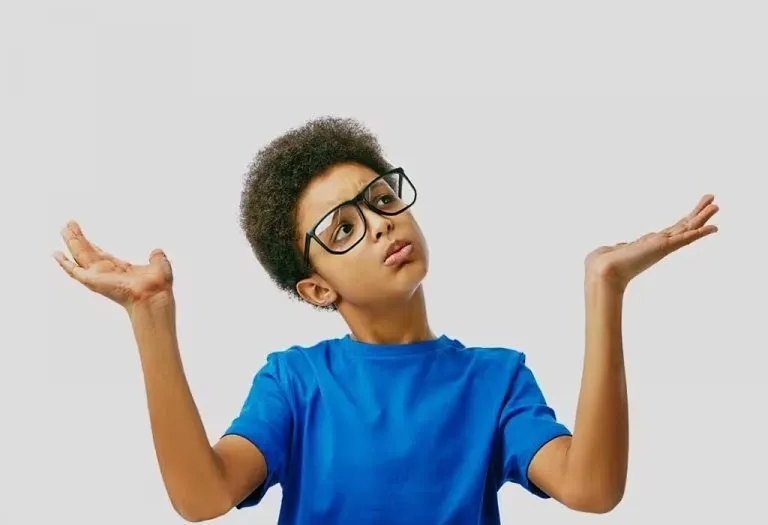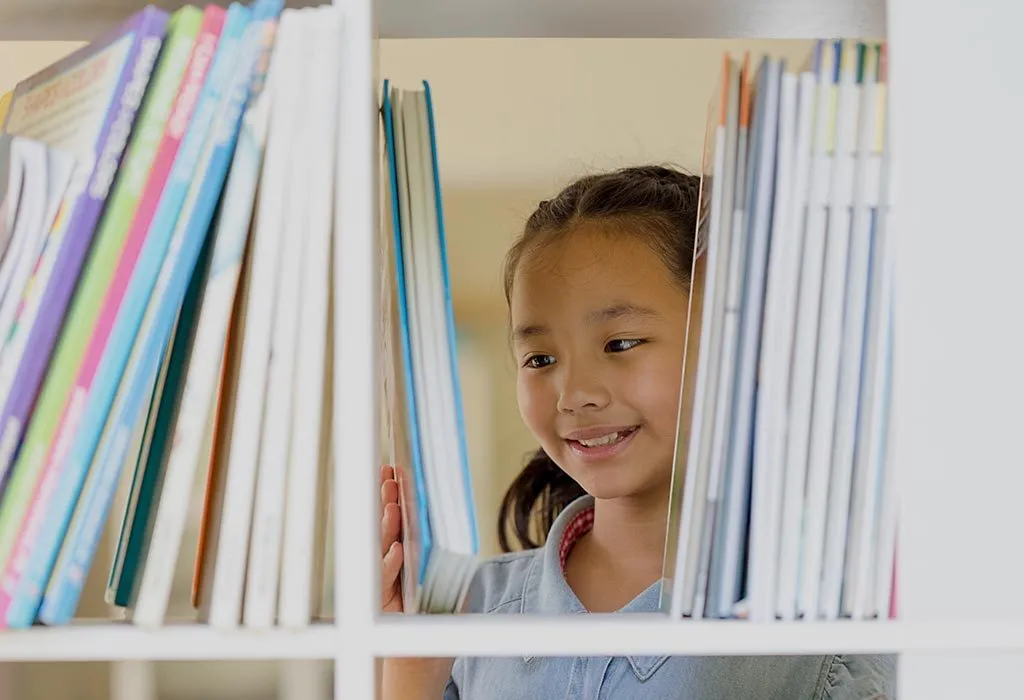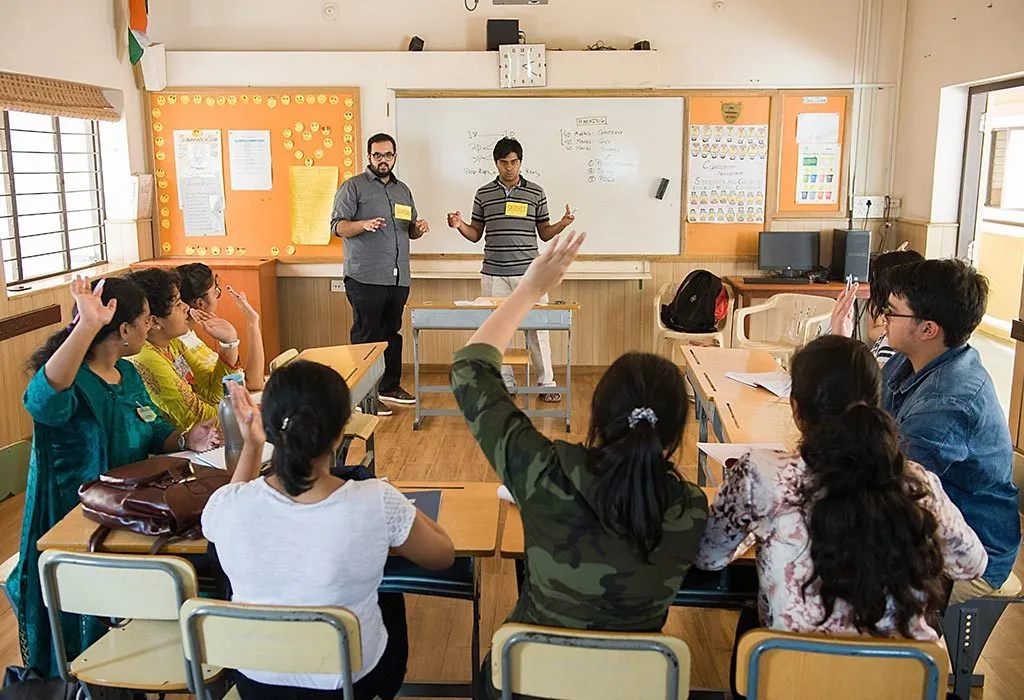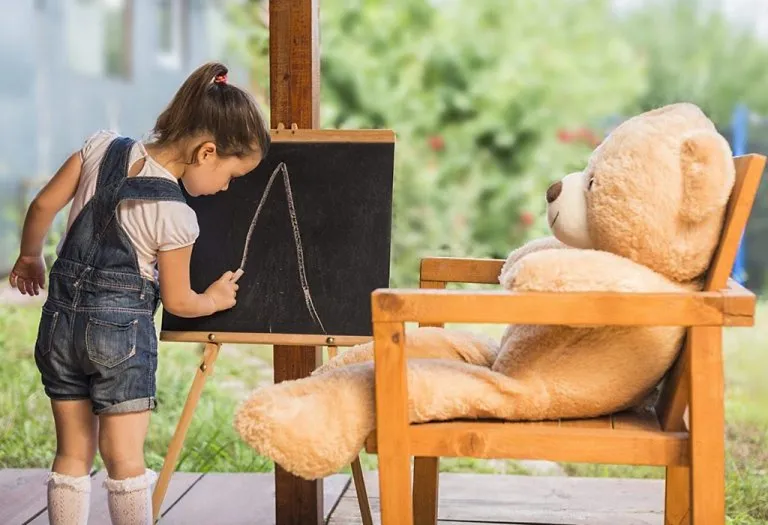How to Develop Decision Making Skills in Kids?

Good decision-making skills, if acquired at the right age, can help children to become successful in life. The transition from childhood to adulthood becomes smooth and easy with good decision-making skills. This skill allows children to find solutions to conflicts and, in the process, illustrates valuable life lessons. Logical thinking and problem-solving support the ability for decision-making. Decision-making for kids is crucial as it equips them with the tools needed to navigate complex situations effectively. Additionally, it fosters independence and confidence, enabling children to trust their instincts and make informed choices. These skills lay the foundation for a well-rounded, responsible adult life. Let’s learn how to develop decision-making skills in students.
What Is Decision Making?
A key skill that children need to develop is decision-making skills. Decision making is the action or process of arriving at a conclusion of accepting an important option by weighing the other alternative possibilities. Decisions taken by children affect their mental health and wellbeing. Their relationships and their success largely depend on decision making. It helps children to become responsible and independent. It also helps children to control impulsive behaviour.
How Do a Child’s Decision-Making Skills Develop?
The mere fact of being able to identify when a decision is to be taken is the first step towards developing decision-making skills. Children learn by observing their parents and peers, hearing such discussions where values are involved, and being given an opportunity to take a decision and experiencing the consequences. Initially, children do sometimes end up making the wrong decisions, but they learn from their mistakes and try to take better decisions in the future. The skill develops further when they clearly understand the reasons for their decision coupled with experience and maturity.
Importance of Decision-Making for Children
The benefits of involving children in decision-making are plenty. The greatest amount of satisfaction and fulfilment comes from a decision rightly taken. Wrong decision-making is an essential part of their journey towards maturity. If children are educated about the decision-making process, they will gain experience. Expose children to correct decision-making. It takes lots of years to master this art, as it is a complex process and needs careful thought. Children should be given tasks, and it should be expected that they make a meaningful contribution and demonstrate responsible behaviour. Decision-making shapes them into the type of adult they will become and the life paths that they will choose later.
Challenges While Teaching Decision Making to Kids
There are definitely some hurdles to jump over when it comes to teaching decision-making to kids. Here are a few of the common ones:
- Limited Experience: Children, particularly younger ones, are still building their understanding of the world. This can make it difficult for them to grasp the potential consequences of their choices, both positive and negative. They might not fully connect their actions to how they might impact themselves or others.
- Short-Term Focus: Kids often live in the present moment. While this is natural, it can make it challenging for them to consider the long-term effects of their decisions. They might prioritize what seems fun or exciting right now, without thinking about how it might affect them later.
- Peer Influence: As children get older, social pressure from friends becomes a bigger factor. They might make choices based on what their peers are doing, even if they know deep down it’s not the best course of action.
- Fear of Failure: Making mistakes is a natural part of life, but children might be afraid to make a choice for fear of being wrong. This can hinder their ability to learn and grow from their experiences.
Tips to Help Children Develop Good Decision–making Skills
There is no doubt that teaching kids decision-making is difficult, but it certainly can be taught using the correct techniques. Involving children in decision-making is a very good idea, as they build their self-confidence in the family’s decision-making process. Given below are ten simple ways how to teach kids to take correct decisions after judging the situation and the available options.
1. Expose Children to the ‘Real World’
A helpful dose of reality is the best teacher to teach. If you wish to make your child understand that the consequences of a particular act are bad, you must expose the child to the harsh consequences by showing live examples rather than lashing or grounding the child. Punishments will only demotivate the child.
2. Allow Children to Make Mistakes
As parents, you must allow your child to make mistakes rather than shielding them from the potential pitfalls. When kids learn a hard lesson from their own mistakes, it provides them with great insight. They learn from their own experiences and remember not to repeat them again.
3. Know Your Child’s Interests
You must motivate your child and help him find out his interests. By setting examples of successful people, he will understand that hard work and dedication are the keys to success and such traits lend very well to decision making. His decision to emulate great leaders is itself a wonderful decision.
4. Teach Your Children to Know Themselves
Children should be taught to distinguish their own strengths and weaknesses so that they are apt to take better decisions in life regarding them. Children should be given plenty of opportunities, but they should also be able to realise that they will not excel in all of them. Learning to accept defeat and setbacks and the decisions to take thereafter are essential for children.
5. Stay Involved With Your Kids
Encourage your child to be a part of social organisations which will teach them life skills. It will expose them to positive peer pressure and your involvement in your child’s life will help you understand your child better. Training the child in his field of interest will mould his future.
6. Talk to Your Child
Though a little difficult to achieve, open communication is vital to parenting. If you bond with your child and illicit real discussion, you are sure to get invaluable insight. This will enable you to anticipate your child’s decisions and warn him accordingly.
7. Pile on Praises
Parents, as a rule, must not just focus on what the child needs to work on. Praising, when kids do great things, helps reinforce their desire to excel and they take those decisions which will provide better outcomes.
8. Teach Your Child to Handle Money Properly
It has been very rightly said that one of the greatest gifts you can give your child is handling money in a responsible manner. It will certainly follow through in his life.
9. Lead by Example
It has truly been said that the best lessons in life are caught, not taught. If parents believe in humbling themselves by narrating their own experiences, children will feel closer to them. They will avoid committing the same errors again.
10. Check the Friends They Keep
The world of children revolves around the world of the social interactions and circle of friends of your child. Their thoughts and deeds are very much influenced by their peers. Keeping a check on the friends they keep will enable you to somewhat predict your child’s future.
Activities to Encourage Decision-Making in Kids
Every day, children make inconsequential decisions which have a big impact. Their decisions are based on personal preferences, by which their safety and lifestyle can be affected. Fun activities can transform a stressful process into an enjoyable pastime. Some interesting decision-making activities for children are given below:
1. Book Talk
Book reading is a favourite pastime of children. They are able to identify with characters and situations if they develop a love of storytelling and book reading. Asking children to do something different than the character exposes deeper thinking of the child. Exploring various consequences of some decisions can help children relate the situations they read about to the real life. Giving a twist to the tales also involves decision-making.
2. Role Play
It is a creative exercise to see young children fantasise themselves as superheroes, parents, teachers or cooks. Older children love to engage themselves in dramatic plays such as performing in skits or staging puppet shows. It provides an opportunity for the child to put himself in different people’s shoes. It encourages them to consider people’s motivations and broadens the children’s minds. Thinking about decision-making as another person under different circumstances reveals the thought process of the child.
3. Board Games
Board games provide a structured way for children to make choices and to experience the consequences of their choices. Apart from entertaining children, it promotes critical thinking and decision-making while deciding and negotiating to decide how they will play the game. The games can be chosen based on favourite themes like dragons or colours so that the children are able to decide clearly how to go about the game.
4. Debate
A predominate way to practice critical thinking is debates and discussions. When children are given the freedom to disagree with one another, it encourages decision-making in a way. Children can be asked to express their opinion on any magazine or newspaper article to inculcate the habit of analysing and arriving at a conclusion by considering why and how they dislike something. The groundwork for thoughtful decision-making is to use concrete evidence to support the opinions.
5. Outdoor Games
Outdoor and playground games encourage children to make quick decisions while engaging socially. Children, thus develop tactics that can improve their chances of winning a game. Decisions are also taken about the game rules and the consequences of breaking the rules. Such organised sports help children making predictions, making split-second decisions and solving complex problems amidst friends or a team.
FAQs
1. What role does problem-solving play in decision-making skills?
Problem-solving is integral to decision-making. It helps children analyze situations, consider possible solutions, and anticipate the consequences of their choices. By engaging in problem-solving activities, children enhance their ability to make informed decisions.
2. What are some common mistakes parents make when teaching decision-making?
One common mistake is overprotecting children from the consequences of their decisions. While it’s important to guide them, experiencing natural consequences helps kids learn from their mistakes. Another mistake is not providing enough opportunities for decision-making, which can hinder the development of this essential skill.
3. How can technology be used to teach decision-making skills?
Technology can be an effective tool in teaching decision-making skills. Interactive apps and games designed for children can simulate real-life scenarios where they must make decisions and see the outcomes. These digital tools can make learning engaging and provide instant feedback, which is crucial for skill development.
4. How can peer influence affect a child’s decision-making skills?
Peer influence can significantly impact a child’s decision-making process. Children may feel pressured to conform to the choices of their friends, which can sometimes lead to poor decisions. Encouraging children to think independently and reinforcing their confidence in making their own choices can help mitigate the effects of peer pressure.
We all agree that children make a range of decisions every day. Their decision-making is strongly influenced by the values and expectations they see around them. The ability to think before acting makes them take better decisions. Evaluating options indirectly develops critical thinking skills in order to arrive at better solutions for problems. The decision-making skill of your children can be honed by following some techniques. Certain activities can go a long way in strengthening their skill of decision making.
References/Resources:
1. Lippold. M, Davis. K, Lawson. K, McHale. S; Day-to-day Consistency in Positive Parent-Child Interactions and Youth Well-Being (Journal of Child and Family Studies); National Library of Medicine; https://www.ncbi.nlm.nih.gov/pmc/articles/PMC5519304/; December 2016
2. How to Help Kids Learn From Mistakes; Harvard Graduate School of Education; https://mcc.gse.harvard.edu/resources-for-families/learning-from-mistakes-2
3. Miller. V; Optimizing Children’s Involvement in Decision Making Requires Moving beyond the Concept of Ability (The American Journal of Bioethics); National Library of Medicine; https://www.ncbi.nlm.nih.gov/pmc/articles/PMC6214154/; March 2018
4. Lundberg. S, Romich. J, Tsang. K; Decision Making By Children (Review of Economics of the Household); ResearchGate; https://www.researchgate.net/publication/24142161_Decision_Making_By_Children; January 2007
5. Demirtas. V, Sucuoğlu. H; In the early childhood period, children’s decision-making processes (
Procedia – Social and Behavioral Sciences); Science Direct; https://www.sciencedirect.com/science/article/pii/S1877042809004108
6. Involving children in decision making; The Commissioner for Children and Young People; https://www.childcomm.tas.gov.au/wp-content/uploads/2015/06/Guide-to-making-decisions-booklet.pdf
Also Read:
Basic Life Skills for Children
Cooperation Skills in Young Children
How to Develop Social Skills in Children?
Communication Skills & Activities for Kids
How to Develop Critical Thinking Skills in Kids?
Was This Article Helpful?
Parenting is a huge responsibility, for you as a caregiver, but also for us as a parenting content platform. We understand that and take our responsibility of creating credible content seriously. FirstCry Parenting articles are written and published only after extensive research using factually sound references to deliver quality content that is accurate, validated by experts, and completely reliable. To understand how we go about creating content that is credible, read our editorial policy here.




























